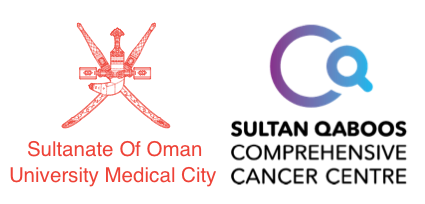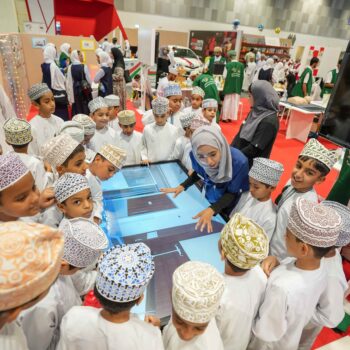Physiotherapy and Rehabilitation. Services, Programs and Goals!
Physiotherapy and rehabilitation play an important role in the recovery process of a cancer patient. Here, we approach this treatment, its fields and goals through an interview with Mr. Sulaiman Saif Al Alawi – Head of Physiotherapy and Rehabilitation Department at Sultan Qaboos Comprehensive Cancer Care and Research Center.
1- To begin with, what is the concept of Physiotherapy and what are its fields in the center?
“The Department of Physiotherapy and Rehabilitation includes three specialties: physiotherapy, occupational therapy and speech therapy. To understand the difference, we can say that physiotherapy focuses a lot on physical activities and making the patient self-reliant to return home without the need for assistance. Occupational therapy on the other hand, focuses on the daily activities human does that makes him functionally self-reliant. As for speech therapy, it includes many areas, including providing facilities for the swallowing process, improving the quality of the voice, and any problems in pronunciation, understanding and comprehending language so that the patients can return to their normal condition.”
2- Tell us about the position of the physiotherapist and rehabilitation specialist in the comprehensive team?
“Of course, whether the patient is in the field of cancer or any other disease, he\she needs a team to treat him\her. Physiotherapy and rehabilitation are a mainstay in this team, and here we work hand in hand with comprehensive team members, including doctors such as oncologists and surgeons, and specialists such as psychiatrists and nutritionists, and others. As a team, we found positive results. When the patient comes, he\she undergoes a full examination that presents a perception of his needs in physiotherapy, occupational therapy or speech therapy since the beginning of treatment. This helps the treatment to proceed in an integrated and parallel course with other specialties. The doctor previously sends the patient to treatment and the patient may receive an appointment after a month or two, but here in the center, the integrated team has positive returns on the patient above all. Our goal is to provide comprehensive service to the patient.”
3- What are the latest devices that help you in the Physiotherapy and occupational Therapy Department here?
“The center has modern and advanced devices, perhaps the only ones in the Sultanate of Oman, including motor rehabilitation devices and a walking simulator. For example, in brain or spine cancer, nerves may be affected and the patient needs to be rehabilitated to walk again. This advanced device helps with that, and there is a robotic device for arm rehabilitation too (Armeo power).
4- What are the latest methods you follow in physiotherapy and rehabilitation?
Our patients are divided to two departments: Outpatient Department, with patients who come with appointments, and some of them have appointments up to three times a week. The other is Inpatient Department, with patients who receive doses of treatment on a daily basis. In Inpatient Department, physiotherapist and rehabilitation specialist examine the patient and work on his\her rehabilitation by making comprehensive rehabilitation program. The team has recently rehabilitated some intensive care patients who are on ventilators in coordination with the doctors and nurses of the Intensive Care Department. This intervention contributed to reducing patients’ stay in intensive care. We seek to transfer this experience to our colleagues in various health sectors.”
5- Finally, what are the new programs that you seek to implement in the center?
“We are still in the process of preparation, but we seek to train employees on various devices, and send them abroad to take courses if required. We have also started to bring expertise in precise specialties in Physiotherapy and rehabilitation to transfer their expertise to department’s employees. Furthermore, we are working to transfer our expertise to other hospitals. For example, a training course on urinary incontinence and gynecological diseases was held where the participants were from different hospitals and Gulf countries. We also want to conduct a training course soon to be presented by an American expert because we seek to provide a treatment service for post-breast cancer.
We are planning to provide a home care service represented in sending our specialists to the homes of patients and considering preparing these homes for the patient who is about to be discharged from the center so that he can continue his normal life. In coordination with the Information and Cyber Security Department, we are seeking to establish a virtual clinic for physiotherapy and rehabilitation to review the progress of treatment and patients’ regularity to perform exercises in their homes without bother coming to the center.”





